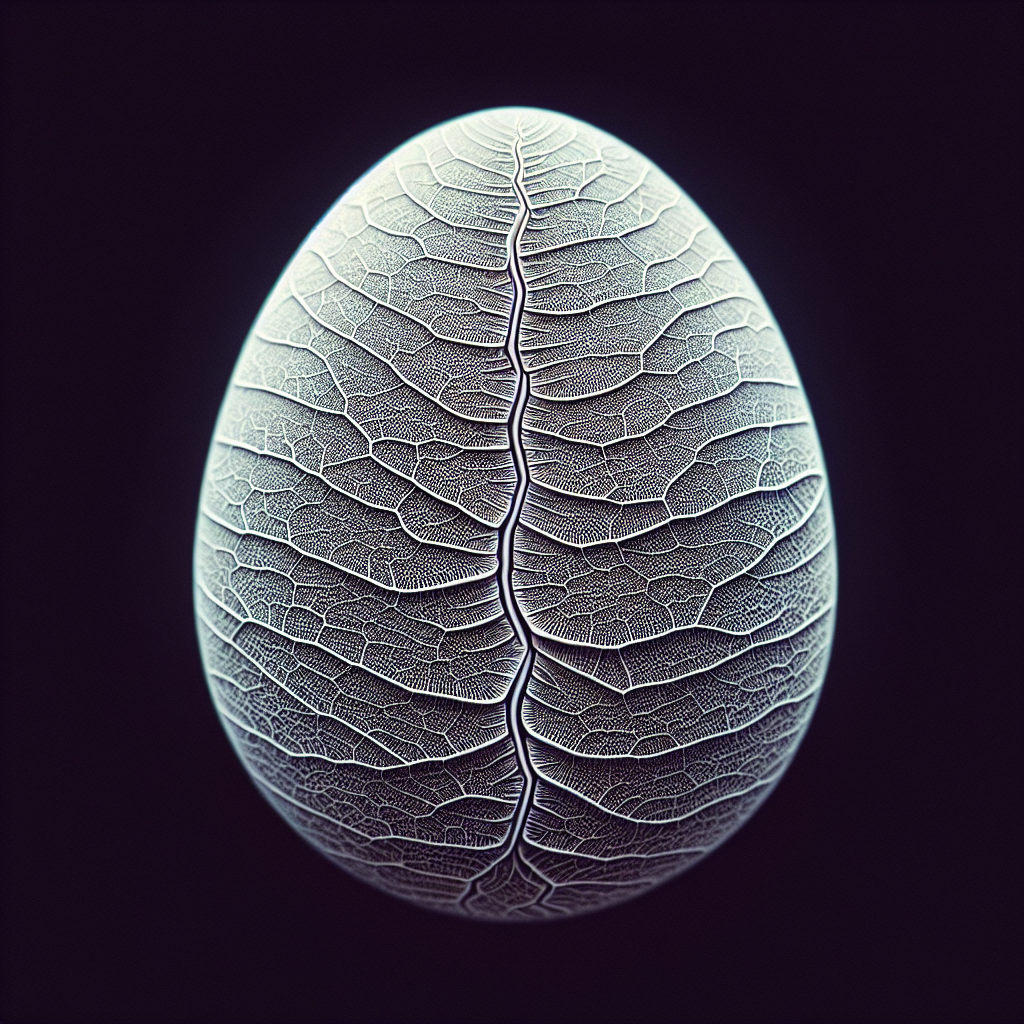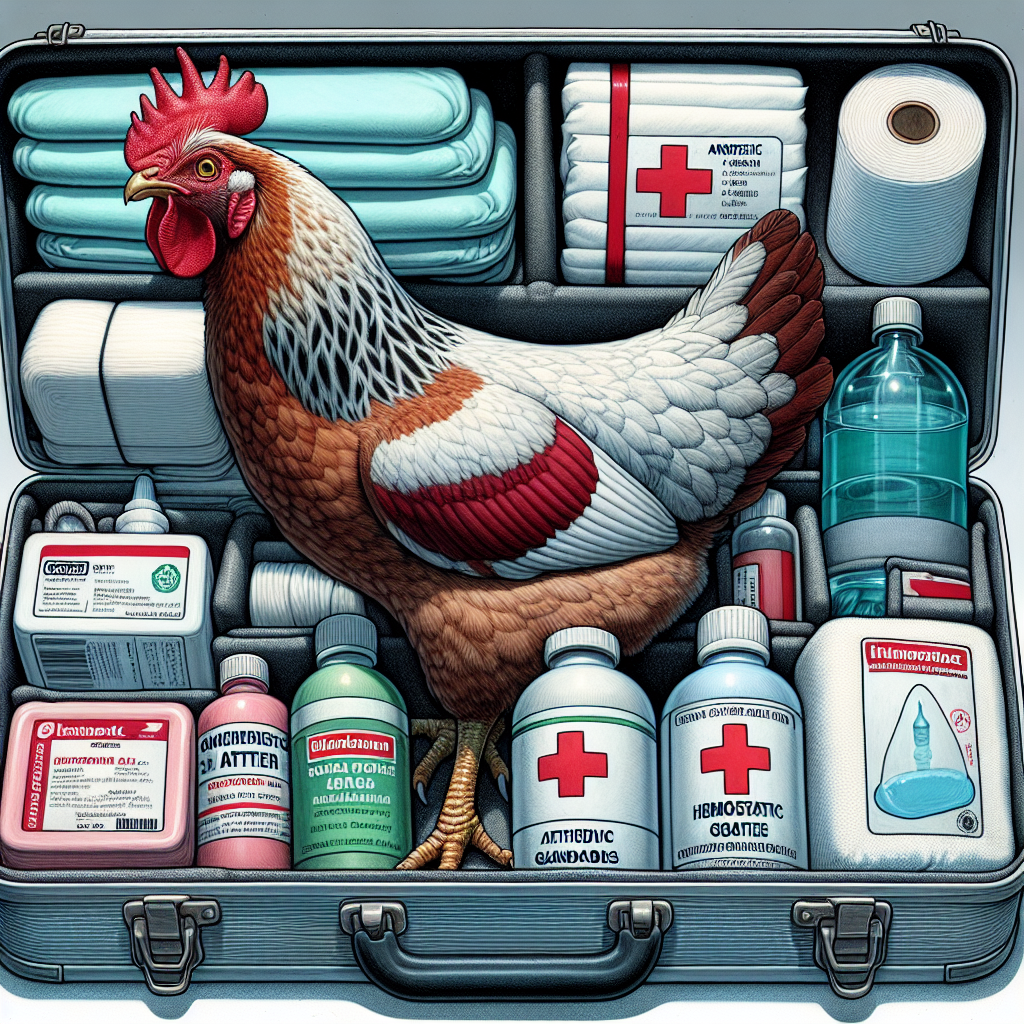Have you ever wondered how to spot if your chicken is suffering from worms or internal parasites? In this article, we will explore the common symptoms that could indicate a chicken’s infestation. By being aware of these signs, you can ensure the health and well-being of your beloved feathered friends. So, let’s take a closer look at what to watch out for and how to take action if you suspect your chicken is dealing with worms or internal parasites.
Common Symptoms of Worms or Internal Parasites in Chickens
If you suspect that your chickens may be suffering from worms or internal parasites, there are several common symptoms you can look out for:
Decreased appetite and weight loss
One of the first signs of a worm infestation in chickens is a decreased appetite. If you notice that your chickens are not eating as much as they usually do or are losing weight, this could be a red flag.
Poor growth and development
Worms can also hinder the growth and development of chickens. If you have young chickens that are not growing as quickly as they should be or are smaller than their counterparts, it could be a sign of worms or internal parasites.
Ruffled feathers and poor feather quality
Chickens with worms often have ruffled feathers and poor feather quality. Their feathers may appear dull, dirty, or unkempt. This is because worms can cause malnutrition in chickens, leading to poor feather health.
Decreased egg production or abnormal eggs
Worms can also affect the egg production of chickens. If you notice a sudden decrease in egg production or if the eggs being laid are abnormal in size, shape, or color, it could be a sign of worms or internal parasites.
Diarrhea or abnormal droppings
Another symptom of worms or internal parasites in chickens is diarrhea or abnormal droppings. If you observe loose or watery droppings, blood in the droppings, or any other unusual fecal consistency, it is important to consider the possibility of a worm infestation.
Swollen abdomen or fluid accumulation
Chickens with worms may develop a swollen abdomen or exhibit fluid accumulation in their body. This is often a result of the worms interfering with the normal functioning of the chicken’s digestive system.
Weakness and lethargy
Worm infestations can cause weakness and lethargy in chickens. If you notice that your chickens are not as active or energetic as usual, it may be a cause for concern.
Pale comb and wattles
A pale comb and wattles can indicate a lack of proper blood circulation, which can be a result of worms or internal parasites. The comb and wattles may appear pale or even white instead of the usual vibrant red color.
Irritability and restlessness
Chickens with worms may also exhibit signs of irritability and restlessness. They may be easily agitated, constantly moving around, or displaying unusual behaviors.
Visible worms or parasites in feces
In some cases, you may actually be able to see worms or parasites in the chicken’s feces. These can appear as small white or red worms, or even as clumps of worms.
Types of Worms and Internal Parasites in Chickens
There are various types of worms and internal parasites that can infect chickens. It is important to be aware of these different types and their characteristics:
Roundworms
Roundworms are one of the most common types of worms found in chickens. They are long, thin worms that can infect the digestive system and other organs. Roundworm infections can lead to issues such as poor growth, weight loss, and decreased egg production.
Tapeworms
Tapeworms are flat, segmented worms that can attach themselves to the lining of the chicken’s intestine. They can grow quite long and can cause issues such as poor appetite, weight loss, and weakness.
Coccidia
Coccidia are single-celled parasites that can infect the intestines of chickens. They can cause diarrhea, weight loss, and dehydration in infected birds.
Gape worms
Gape worms are also known as Syngamus trachea. They are red, thread-like worms that infect the respiratory system of chickens. Gape worm infestations can lead to respiratory issues and difficulty breathing.
Hairworms
Hairworms, also known as Capillaria, are small, thread-like worms that infect the digestive system of chickens. They can cause poor growth, weight loss, and diarrhea.
Gapeworms
Gapeworms, also known as Syngamus trachea, are red, thread-like worms that infect the throat and windpipe of chickens. They can cause respiratory issues and difficulty breathing.
Threadworms
Threadworms, also known as Strongyloides, are tiny worms that infect the digestive system of chickens. They can cause issues such as poor growth, weight loss, and diarrhea.
Cecal worms
Cecal worms, also known as Heterakis, are small worms that infect the ceca of chickens. They can lead to coccidiosis and other digestive issues.
Northern fowl mite
The northern fowl mite is a parasitic mite that feeds on the blood of chickens. Infestations can cause irritation, discomfort, and stress in infected birds.
Scaly leg mite
Scaly leg mites are tiny mites that infest the legs and feet of chickens. They burrow under the scales, causing them to become raised, dry, and scaly. Infestations can cause pain, discomfort, and difficulty walking for the chicken.
How Chickens Get Infected by Worms and Internal Parasites
Understanding the ways in which chickens can become infected by worms and internal parasites is essential for prevention and control. Here are the common ways chickens can become infected:
Ingesting contaminated food or water
One of the most common ways chickens become infected by worms and internal parasites is by ingesting contaminated food or water. Parasites can be present in the environment, such as in soil or feces, and can contaminate the food and water sources of chickens.
Coming into contact with infected birds or animals
Chickens can also become infected by worms and internal parasites by coming into direct contact with infected birds or animals. This can occur during free-ranging or when introducing new birds into the flock.
Exposure to infected soil
Chickens that have access to outdoor areas can be exposed to worms and internal parasites through contaminated soil. Parasite eggs and larvae can survive in soil for extended periods and can infect chickens when they come into contact with it.
Cross-contamination within a flock
If one chicken within a flock becomes infected with worms or internal parasites, there is a risk of cross-contamination to other chickens within the same flock. This can occur through close contact or shared housing environments.
Vertical transmission from parent birds
Chickens can also inherit worms and internal parasites from their parent birds. This is known as vertical transmission. It is important to ensure that parent birds are free from parasites to minimize the risk of transmission to the offspring.
Prevention and Control Measures for Worms and Internal Parasites in Chickens
Prevention and control of worms and internal parasites in chickens are essential for maintaining the health and well-being of your flock. Here are some measures you can take to prevent and control infestations:
Maintaining good hygiene and sanitation practices
Regularly cleaning and disinfecting the chicken coop, nesting boxes, and feeding areas can help prevent the buildup and transmission of worms and internal parasites. Remove droppings regularly and ensure that the coop is free from dampness and excess moisture.
Regular deworming and parasite control
Implementing a regular deworming and parasite control program is crucial in preventing and controlling infestations. Consult with a veterinarian to determine the appropriate deworming schedule and medication for your chickens. Consider rotating different types of dewormers to prevent resistance.
Isolation and treatment of infected birds
If you identify a chicken with worms or internal parasites, it is important to isolate and treat the infected bird immediately. This prevents further transmission within the flock and allows for targeted treatment.
Quarantine protocols for introducing new birds
When introducing new birds into your flock, it is advisable to implement a quarantine period. This gives you the opportunity to monitor and assess the health of the new birds, preventing the introduction of worms or internal parasites to your existing flock.
Avoiding overcrowding and stress
Overcrowding and stress can weaken the immune system of chickens, making them more susceptible to infestations. Ensure that your chickens have enough space, proper ventilation, and access to clean water and food to minimize stress and promote overall health.
Clean and fresh water sources
Providing clean and fresh water sources is important for preventing infestations. Stagnant or contaminated water can serve as a breeding ground for parasites. Consider using automatic waterers or regularly cleaning and refilling water containers.
Clean and dry housing
A clean and dry housing environment is crucial for preventing the buildup and transmission of worms and internal parasites. Regularly clean and disinfect the chicken coop, ensuring that the bedding is dry and free from moisture.
Proper manure management
Proper management of chicken manure can help minimize the risk of infestations. Regularly clean and remove manure from the coop and surrounding areas. Composting or properly disposing of the manure can help reduce the presence of parasite eggs and larvae.
Regularly rotating pasture and grazing areas
Rotating pasture and grazing areas can interrupt the life cycle of worms and internal parasites. This reduces the risk of re-infestation as the parasite eggs and larvae have less time to become infective in a particular area.
Monitoring and early detection of signs of infestation
Regularly monitoring your chickens for any signs of infestation is crucial for early detection and prompt treatment. Observe their behavior, appetite, droppings, and overall health. Perform regular health checks and consult with a veterinarian if you suspect any issues.
Diagnosing Worms and Internal Parasites in Chickens
Proper diagnosis is essential for effective treatment and control of worms and internal parasites in chickens. Here are some common methods used for diagnosing infestations:
Fecal float test
A fecal float test involves collecting a fresh fecal sample from the chicken and examining it under a microscope. This test can help identify the presence of parasite eggs or larvae in the feces, indicating an active infestation.
Examining fecal samples under a microscope
Microscopic examination of fecal samples can provide detailed information about the type of parasite present in the chicken. This can help guide the appropriate treatment and control measures.
Clinical signs and symptoms
The presence of clinical signs and symptoms, such as those mentioned earlier, can provide insights into the likelihood of a worm or internal parasite infestation. However, it is important to note that clinical signs alone may not be sufficient for an accurate diagnosis.
Post-mortem examination
In cases where chickens have unfortunately passed away, a post-mortem examination can be performed to determine the cause of death. This can help identify the presence of worms or internal parasites and potentially assess the severity of the infestation within the flock.
Treatment Options for Worms and Internal Parasites in Chickens
Once a diagnosis has been confirmed, appropriate treatment measures can be implemented. Here are some treatment options commonly used for worms and internal parasites in chickens:
Anthelmintic medications
Anthelmintic medications, also known as dewormers, are commonly used to treat and control worms and internal parasites in chickens. These medications are available in various forms, including powders, pastes, and liquids. Consult with a veterinarian to determine the most suitable and effective dewormer for your chickens.
Organic and herbal remedies
Some chicken owners prefer to use organic or herbal remedies for treating worms and internal parasites. These remedies may include the use of garlic, pumpkin seeds, diatomaceous earth, or other natural substances. It is important to note that the efficacy of these remedies may vary, and consulting with a veterinarian is advisable.
Supportive care and nutrition
Supportive care and nutrition can play a vital role in the recovery of chickens from worm infestations. Ensure that your chickens have access to a balanced diet, including appropriate protein levels, to support their immune system and overall health.
Proper medication dosages and administration
When administering anthelmintic medications, it is crucial to follow the dosage instructions provided by the manufacturer or veterinarian. Underdosing can result in ineffective treatment, while overdosing can lead to potential adverse effects. Administer the medication according to the recommended method, whether it is through oral administration, mixing with feed, or other instructions specified.
When to Seek Veterinary Assistance
While many cases of worms and internal parasites in chickens can be managed with appropriate care and treatment, there are instances when veterinary assistance should be sought:
Persistent or worsening symptoms
If your chicken’s symptoms persist or worsen despite treatment, it is advisable to consult with a veterinarian. This could indicate factors such as resistance to deworming medications or an underlying health issue that requires further assessment.
Severe infestation or heavy worm burden
In cases of severe infestation or heavy worm burden, veterinary intervention may be necessary. A veterinarian can provide guidance on the most effective treatment options and administer appropriate medications.
Suspected resistance to deworming medications
If you suspect that your chickens may have developed resistance to deworming medications, seeking veterinary assistance is crucial. A veterinarian can perform diagnostic tests to confirm resistance and recommend alternative treatment options.
Concerns about drug withdrawal periods in egg-laying hens
If you have concerns about drug withdrawal periods in egg-laying hens, it is important to consult with a veterinarian. They can provide guidance on the appropriate withdrawal period after administering deworming medications to ensure the safety of consuming eggs.
Remember, timely veterinary assistance and proper treatment are essential for the health and well-being of your chickens. By addressing worm and internal parasite infestations promptly, you can protect your flock and promote their overall health.




